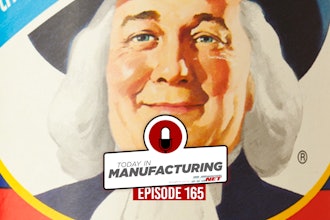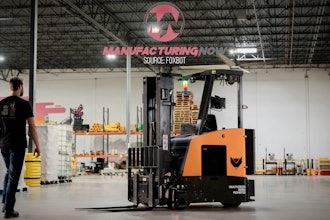The eCommerce imperative in manufacturing is driving a rush to develop and implement first-class eCommerce technologies capable of providing customers the kinds of online experiences they have come to expect from their favorite B2C brands.
But blindly adding features and capabilities is a recipe for disaster. In addition to incurring unnecessary costs, well-intentioned manufacturers run the risk of creating eCommerce platforms that aren’t suited to their customers’ needs. As a result, manufacturing brands need to understand which B2C features are most appropriate for firms competing in the B2B digital marketplace.
Evaluating Available Features and Capabilities
Across the industry, manufacturers are considering eCommerce as a cost-effective way to grow their companies. The movement toward eCommerce is fundamentally shifting in the way manufacturers do business, including a transition from a focus on products and channels to a renewed focus on customer needs and preferences.
The customer-focused approach comes to a head in the features and capabilities contained in the company’s eCommerce platform. Although not all B2C capabilities are relevant to manufacturing customers, several B2C eCommerce features that are worth considering include:
1. Personalization. When manufacturing customers shop consumer websites, they find a sophisticated range of features that personalize the experience to their individual buying preferences. Today’s eCommerce technology enables manufacturers to deliver a similar level of personalization through real-time product recommendations, bestseller lists and capabilities that leverage the customer’s buying history and other information to create a tailored digital experience.
2. Search. It can be argued that robust search capabilities are even more important for manufacturing brands than they are for other B2B and B2C businesses. Complex catalogs and detailed product specs demand search capabilities that enable the use of advanced search criteria and terms to quickly locate desired products and determine availability based on current inventories.
3. Buying and Browsing. Until recently, attempts at eCommerce in manufacturing focused on giving customers the ability to look up product information or manufacturing data sheets, or similar (think brochureware), if anything. But today’s tech-savvy customers want options. In addition to being able to quickly find relevant information, manufacturing eCommerce sites need to offer robust product catalogs, expanded information, how-to guidance (even in form of videos), instant support through “click or chat” features, and, in some cases, the ability to purchase directly from the manufacturer.
4. Content Management. The best manufacturing eCommerce platforms prioritize content management. Without a strong product content management (PCM) solution, it is impossible to enable customers to sort or browse information across a range of product dimensions. Content management takes on even greater significance given the depth of most manufacturers’ product catalogs and in many ways, forms the basis for manufacturers’ entire eCommerce platform.
5. Account Management and Analytics. Those manufacturers that have made the plunge and are offering purchasing experiences have done a good job providing basic information that allows customers to view order histories and other buyer-facing information. But most manufacturers have been less successful at integrating seller analytics into their eCommerce platforms. The current generation of eCommerce technology fills the gap with analytics that reveal key insights about customer behaviors, and helps companies understand where and why customers are leaving their sites.
6. Social and Mobile. Social and mobile channels are transforming both B2C and B2B eCommerce. Although ratings, reviews and social channel integration may not be relevant for all B2B companies, manufacturers with high volume sales of products that cost less than $10,000 per unit can potentially benefit from social media plug-ins and active social media engagement. Mobile access can enable customers to check order status from their mobile devices, place orders via mobile apps or mobile browsers and perform other anytime/anywhere tasks that are becoming standard in B2C commerce. And manufacturers should by no means ignore the possibilities of leveraging mobile in sales force automation — worthy of a whole article unto itself.
7. Product/Order Configuration. Manufacturing customers often require the ability to configure products to precise specifications. First-rate eCommerce technology allows shoppers to configure and view multi-featured products in real-time, confirming desired product dimensions before they place their orders.
Manufacturing is rapidly moving toward a multi-channel commerce model that integrates several channels (e.g. online, print catalogs and sales teams) into a single, unified ecosystem. Looking ahead, leading manufacturers will take the multi-channel concept a step further and prioritize the implementation of omni-channel commerce platforms — technologies that deliver seamless shopping and fulfillment experiences across all possible connection channels.






















